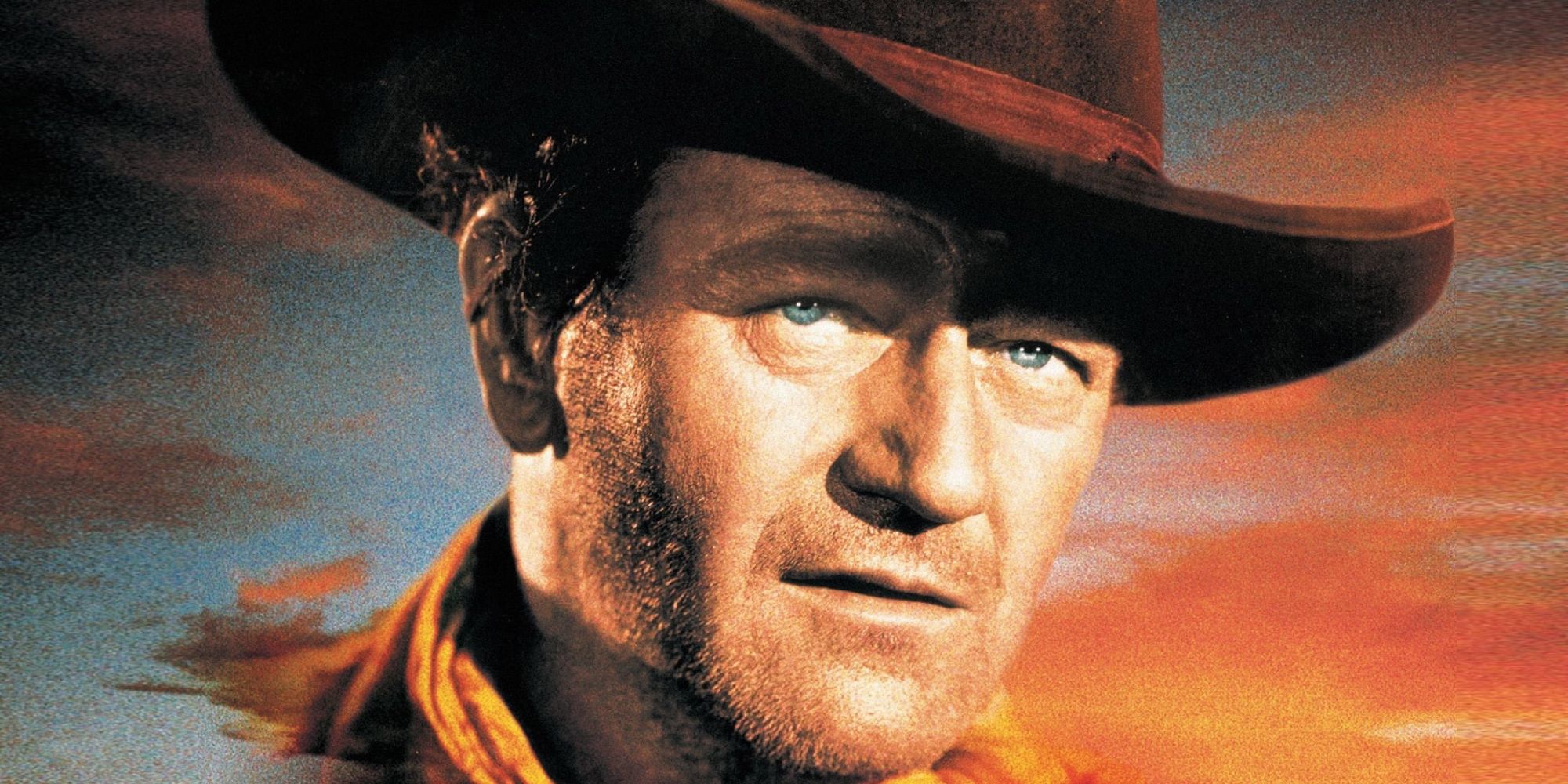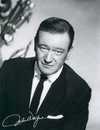You don’t become a legend by accident. Over a career spanning five decades, John Wayne practically embodied the Western. With his towering presence, drawling cadence, and no-nonsense charisma, he turned stoic cowboys, weary soldiers, and reluctant heroes into modern myths.
Yet beneath the broad shoulders and gravelly voice was almost a surprising range, an actor capable of humor, introspection, and even melancholy when the role demanded it. With this in mind, this list ranks the star’s bangers. Whether he’s gunning down outlaws, confronting moral dilemmas, or just riding off into a Technicolor sunset, each one captures something essential about his enduring appeal.
10
‘The Quiet Man’ (1952)
Directed by John Ford
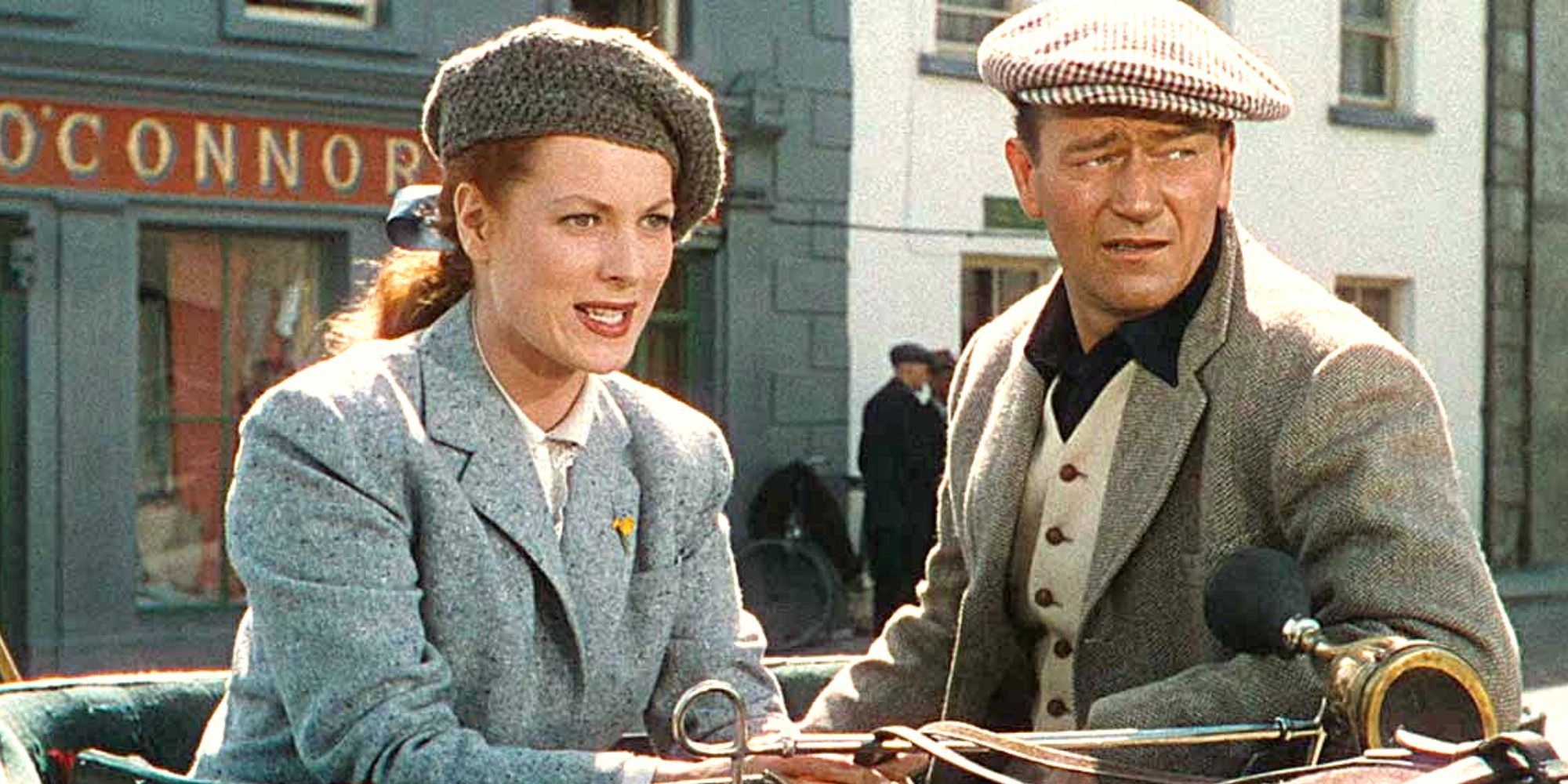
“I’ll say one thing for you, you’re a quiet man.” Set against a backdrop of lush green Irish hills, The Quiet Man is a rare chance to see Wayne outside the dust and grit of the American West, though he’s no less commanding. In this one, he plays Sean Thornton, a former boxer who returns to his ancestral home hoping for peace and redemption, only to find himself swept into local feuds and a fiery romance. This is Wayne at his most relaxed and romantic, fully believable as a man trying to outrun personal demons.
The chemistry between Wayne and Maureen O’Hara is great, full of swooning and stubborn sparks. On the storytelling front, director John Ford fills every frame with old-fashioned charm and mythic undertones, from the iconic rain-soaked kiss to the legendary fistfight that tears through the countryside. All in all, The Quiet Man is a nice change of pace, a gentle epic.
9
‘She Wore a Yellow Ribbon’ (1949)
Directed by John Ford
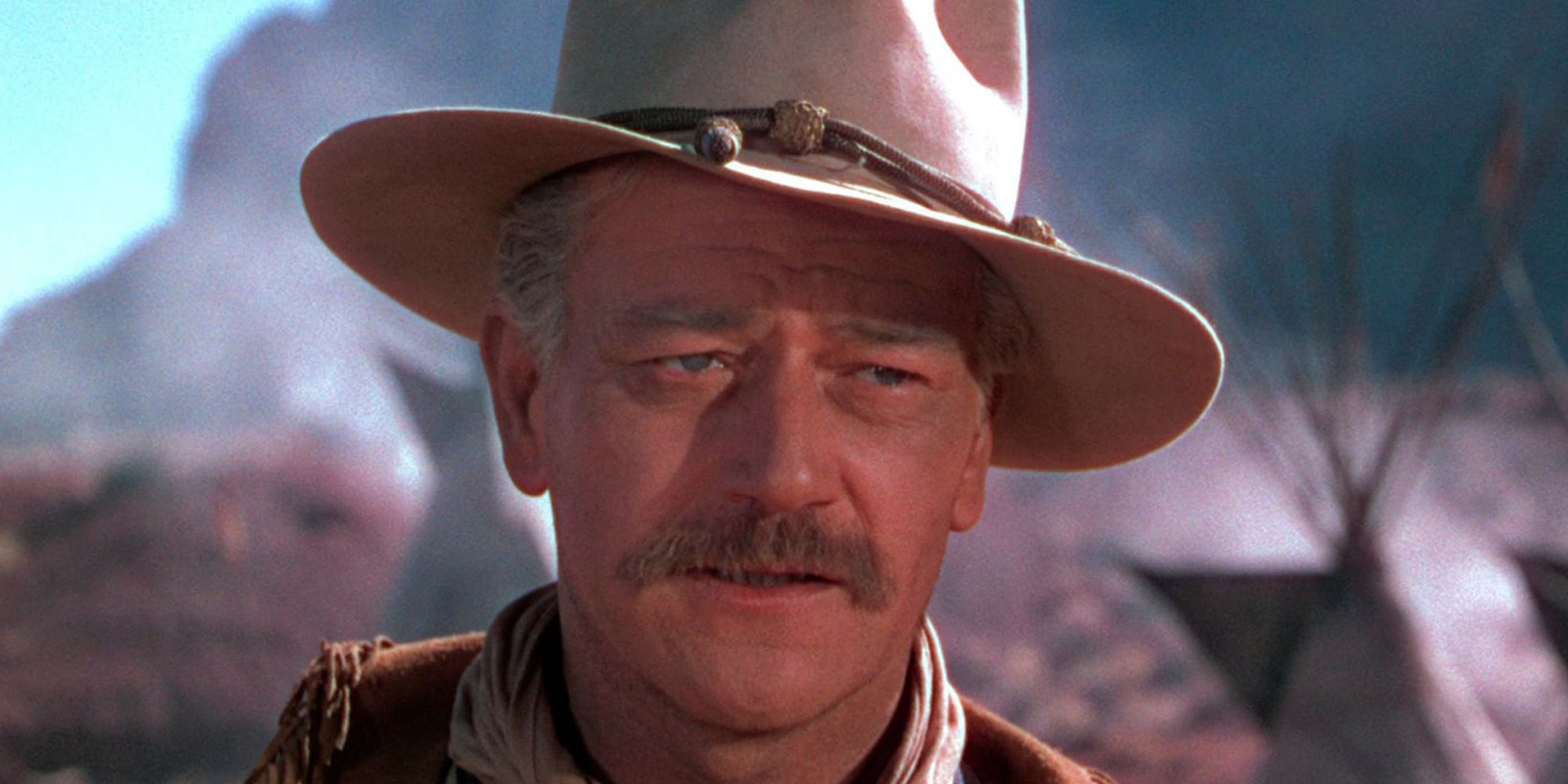
“Never apologize. It’s a sign of weakness.” She Wore a Yellow Ribbon features one of the star’s most heartfelt performances. He leads the cast as Captain Nathan Brittles, an aging cavalry officer facing forced retirement. It may be a Technicolor Western filled with sweeping landscapes and military ritual, but it’s also a meditation on legacy, duty, and the inevitability of change. Brittles knows the frontier is moving on without him, and he’s trying to leave it better than he found it.
Wayne appropriately dials back the bravado in the part. Rather than bluster, he’s all weary dignity. His character doesn’t ride off into battle so much as into memory. Here, the actor teams up yet again with John Ford, who is also at the top of his game. The director captures Monument Valley like a painting, and the film’s color photography is some of the most beautiful of any Western from its day.
8
‘True Grit’ (1969)
Directed by Henry Hathaway
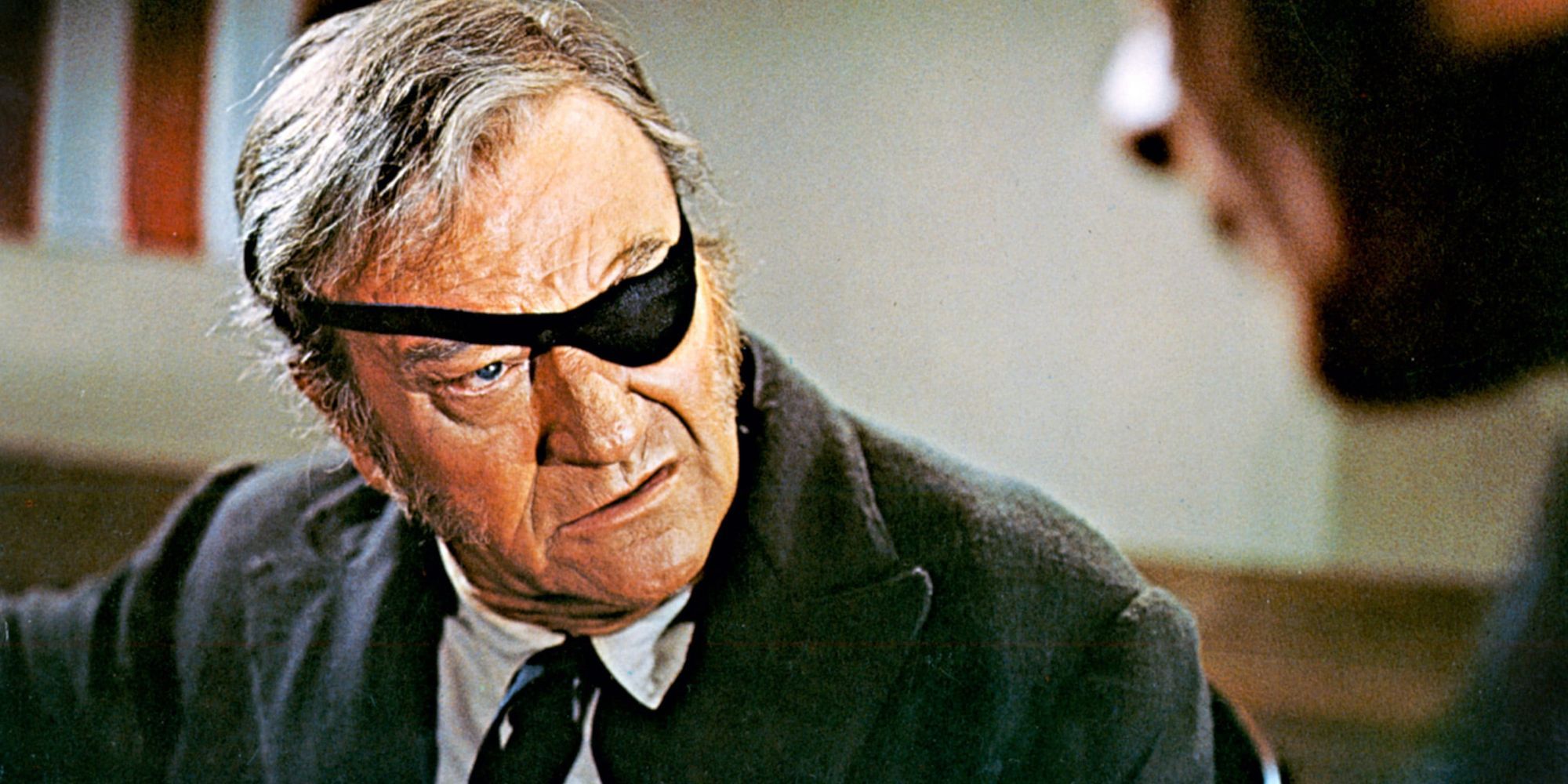
“Fill your hand, you son of a bitch!” It took decades, but Wayne finally won his Oscar for True Grit, and deservedly so. As Rooster Cogburn, a one-eyed U.S. Marshal with a mean streak and a drinking problem, he delivers a performance that’s both hilarious and moving. This is Wayne unafraid to be scruffy, stubborn, and a little ridiculous, and somehow more iconic than ever. The story follows Cogburn as he’s hired by a young girl named Mattie Ross (Kim Darby) to hunt down her father’s killer.
Their dynamic (gruff lawman, precocious teen) is the beating heart of the movie. But it’s Wayne’s mix of curmudgeonliness and buried warmth that gives True Grit its soul. The final shootout, with Rooster charging across an open field with guns blazing, reins in his teeth, is the stuff of legend. It’s the cowboy myth taken to its grandest, roughest, most rousing form. Those only familiar with the Coen brothers version should return to the source.
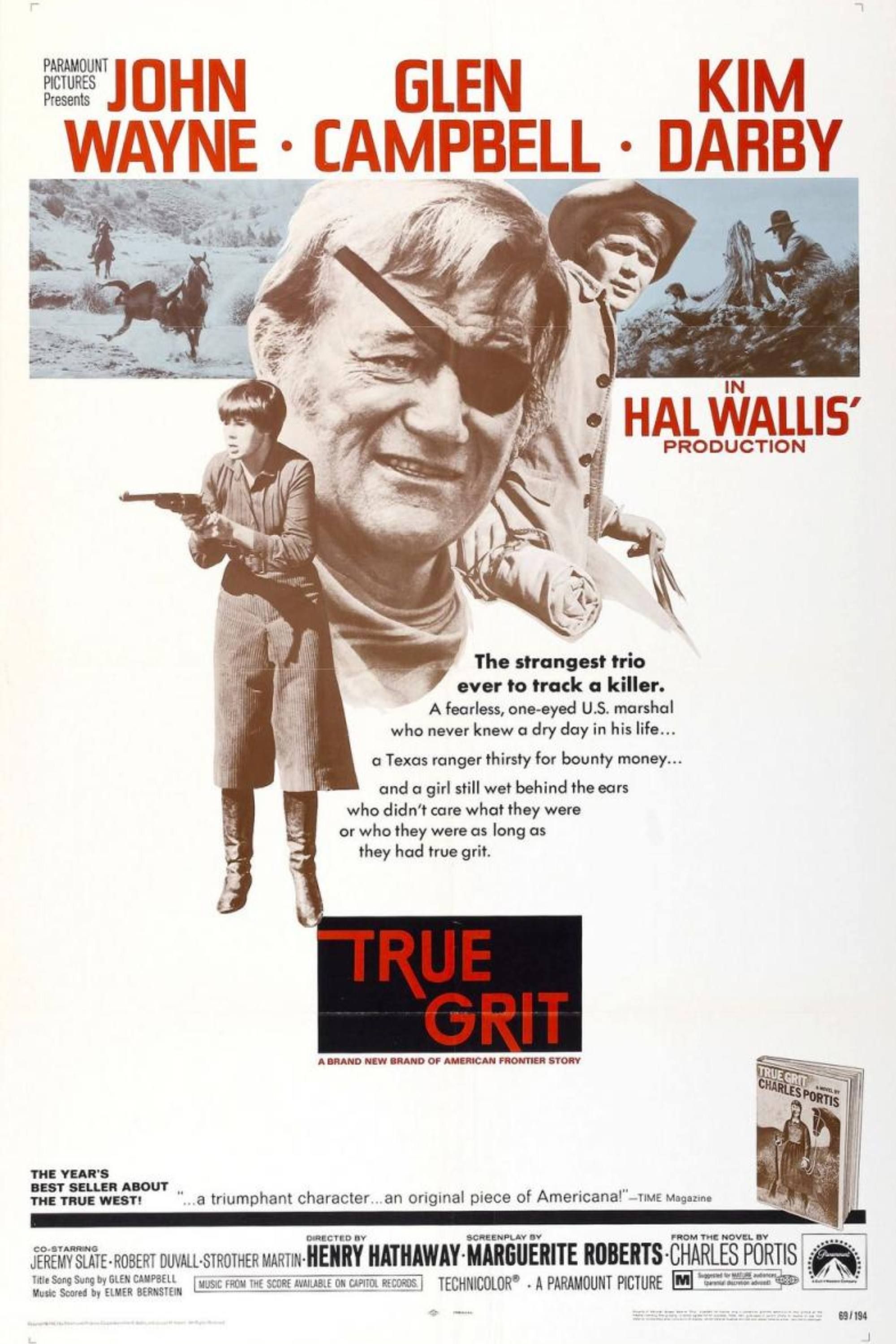
True Grit
- Release Date
-
June 11, 1969
- Runtime
-
128 minutes
7
‘Fort Apache’ (1948)
Directed by John Ford
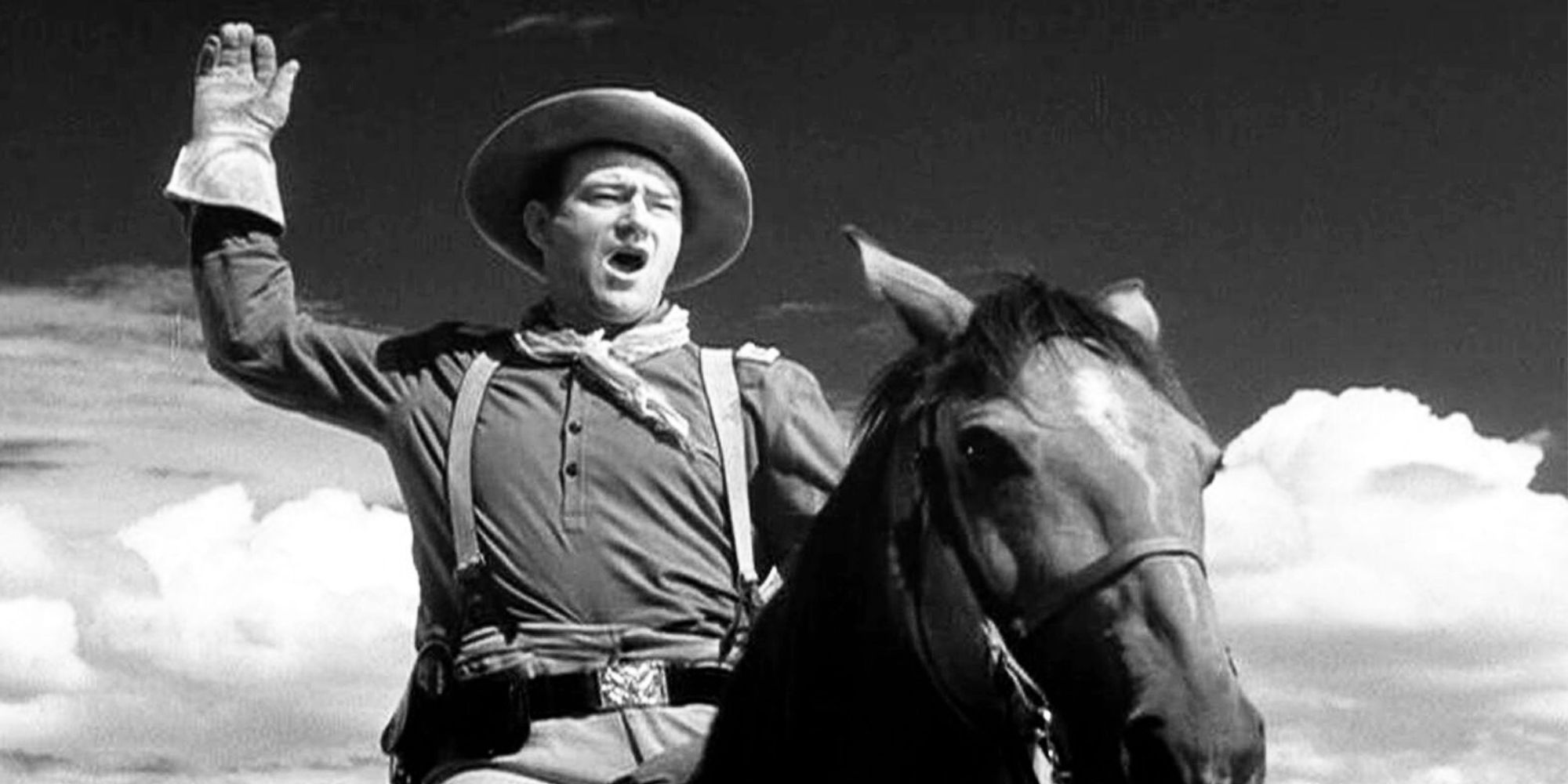
“When you think you’re right, stick to your guns.” Fort Apache is the first installment in John Ford’s “Cavalry Trilogy,” and it’s one of the most morally complex Westerns of its time. Wayne plays Captain Kirby York, a seasoned officer who finds himself at odds with the by-the-book, prideful Colonel Thursday (Henry Fonda). The tension between them is more than personal, however. At bottom, it’s philosophical, pitting experience and respect for Native peoples against arrogance and blind authority.
While flawed, Wayne’s York stands for humility and conscience. Through him and Thursday, the film critiques the myths of American conquest even as it participates in them, making Fort Apache one of the most layered entries in Wayne’s filmography. It doesn’t offer easy answers or clean heroism, but it does give fans Wayne in one of his most restrained and principled performances. It proves once again that he was more than just a tough guy with a six-shooter.
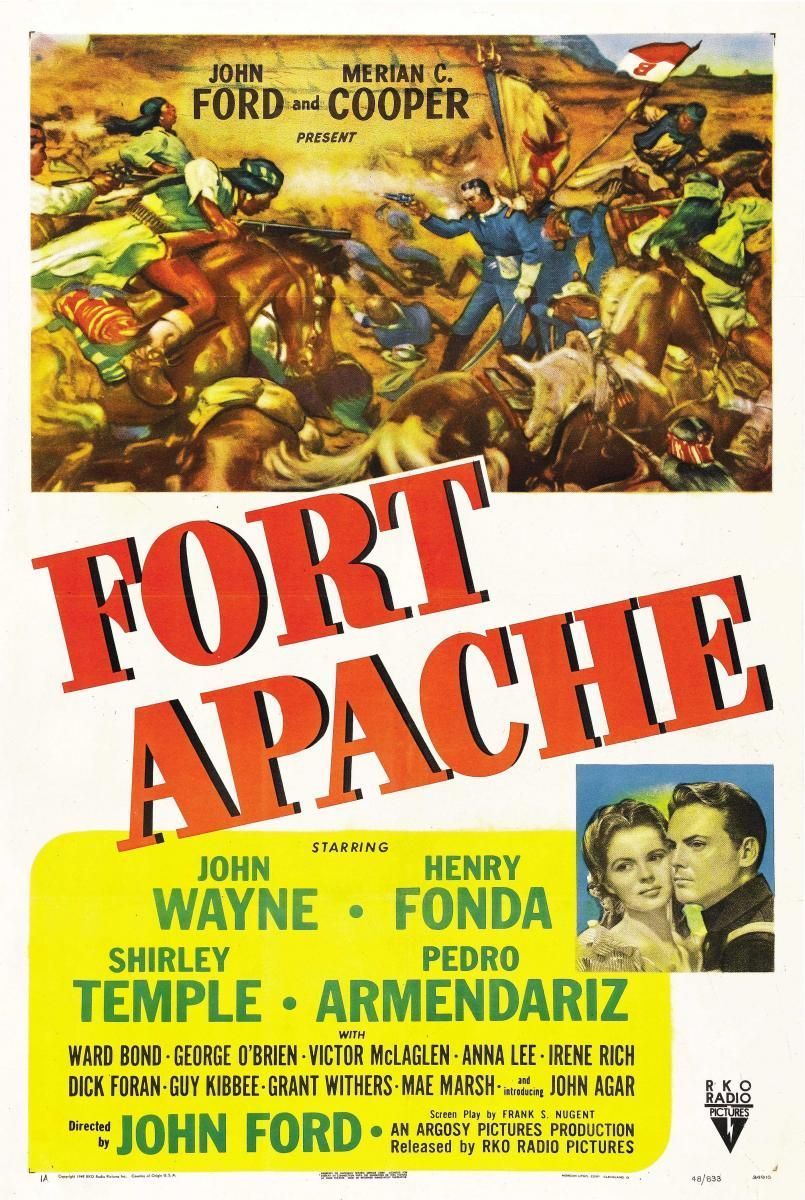
Fort Apache
- Release Date
-
March 27, 1948
- Runtime
-
125 Minutes
6
‘The Shootist’ (1976)
Directed by Don Siegel
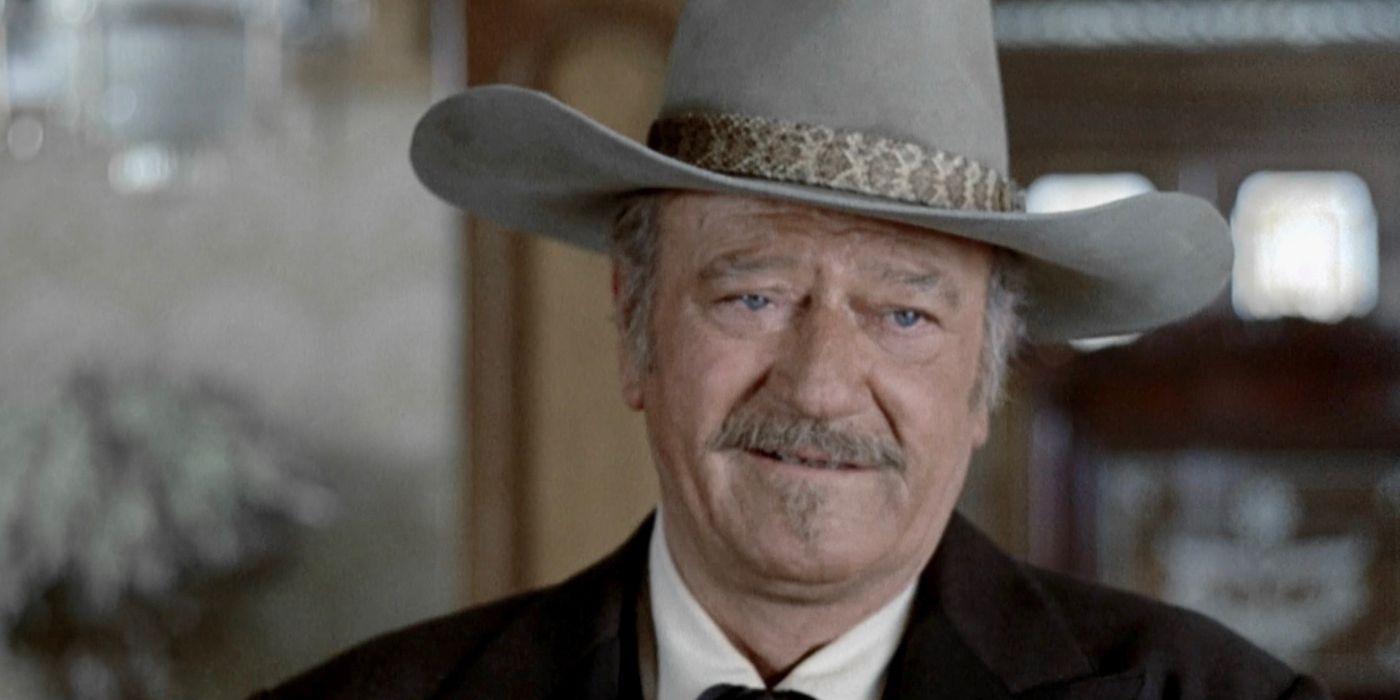
“I won’t be wronged. I won’t be insulted.” The Shootist is a curtain call, and Wayne knew it. Playing J.B. Books, an aging gunslinger dying of cancer, he was channeling his own real-life illness, and the result is haunting. This is arguably Wayne’s most personal role. Books is a man out of time, trying to face death on his own terms in a world that no longer needs or understands him. The film is quiet, reflective, and filled with conversations about legacy, dignity, and the fear of fading into irrelevance.
Directed with a steady hand by Don Siegel, The Shootist surrounds Wayne with a stellar cast, including Lauren Bacall and a young Ron Howard, but it’s Wayne’s performance that carries the weight. If The Searchers was his most mythic project, The Shootist is his most human, and it’s the perfect goodbye. One of the very best Western swan songs.
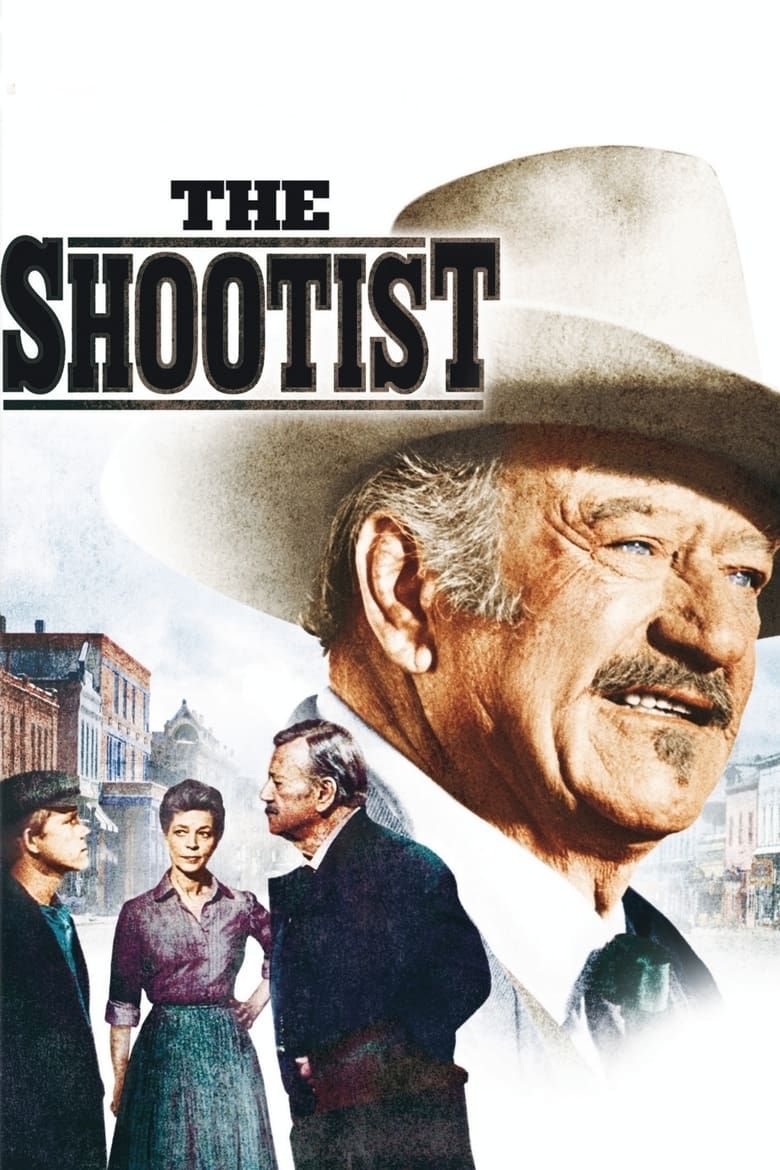
The Shootist
- Release Date
-
August 11, 1976
- Runtime
-
100 minutes
5
‘Stagecoach’ (1939)
Directed by John Ford

“Looks like we’re the only ones left, Doc.” This is where it all truly began. More than just being Wayne’s breakout movie, Stagecoach was a revolutionary Western, redefining what the genre could be. As the Ringo Kid, Wayne explodes onto the screen with one of the most iconic introductions in film history, spinning his rifle with boyish ease and steely intent. But what’s remarkable is how much range he shows, even in this early role. Tough, but also gentle, funny, and noble.
Even aside from Wayne, Stagecoach is a near-perfect ensemble piece, throwing together a mismatched group of travelers on a dangerous journey through hostile territory. The tensions, class divisions, and moral reckonings that unfold along the way elevate the film far beyond shootouts and scenery. The story is told with economy and style, influencing countless Westerns that followed, not least Tarantino‘s The Hateful Eight, which borrows some of its shots in its opening scenes.
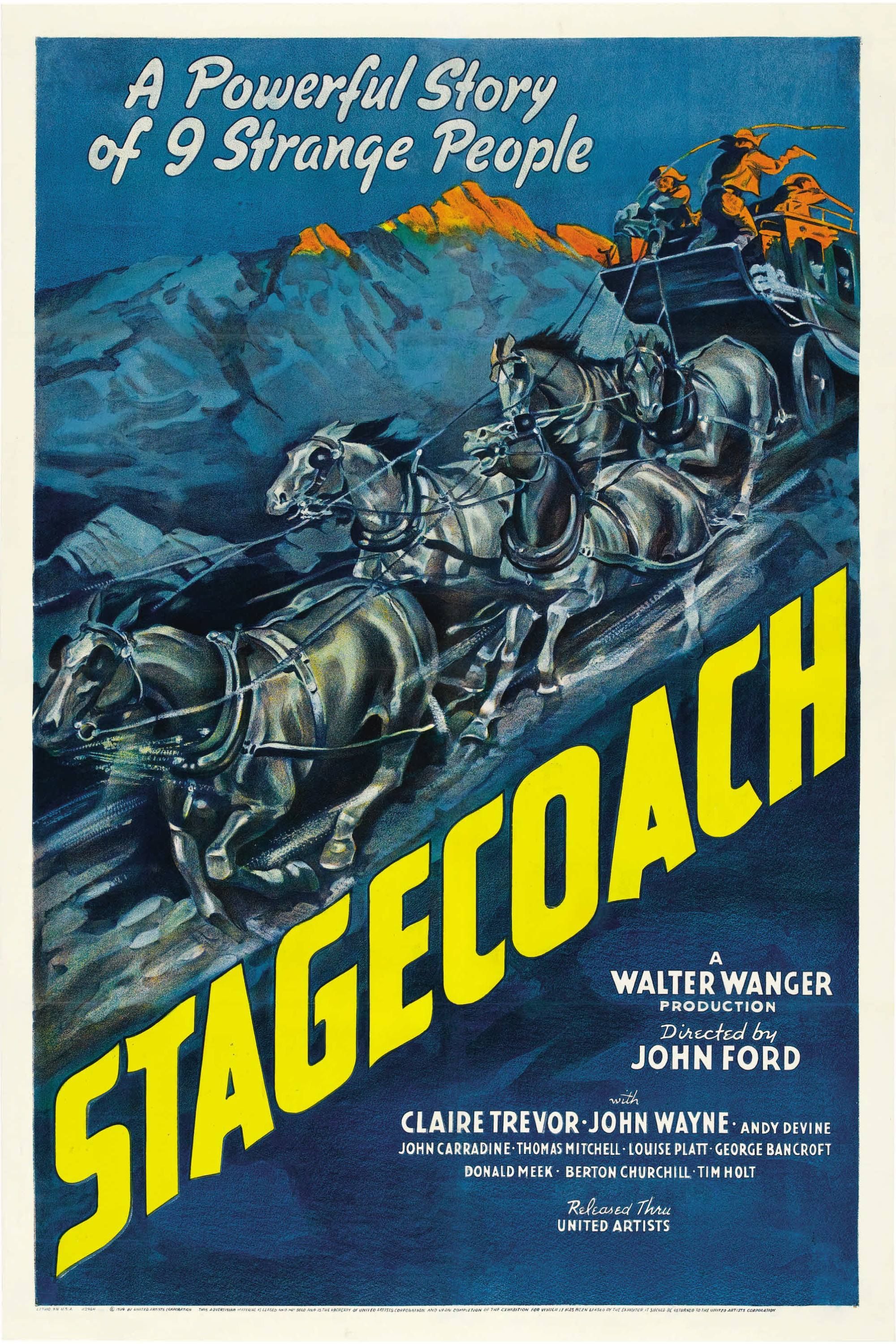
Stagecoach
- Release Date
-
March 3, 1939
- Runtime
-
96 Minutes
4
‘Red River’ (1948)
Directed by Howard Hawks
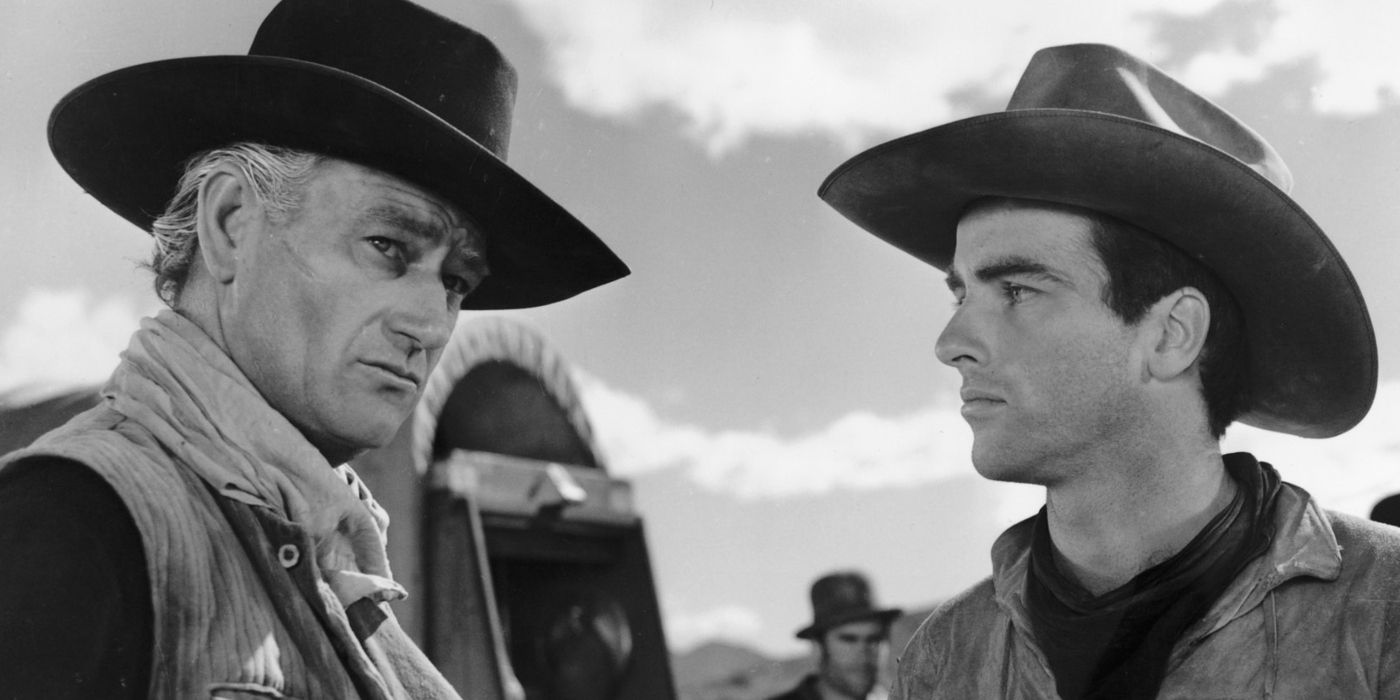
“You should’ve let them kill me, because I’m gonna kill you.” Red River gives us one of Wayne’s most uncharacteristically hard-edged roles. As Tom Dunson, a ruthless cattle baron whose authority is challenged by his adopted son, Wayne channels a cold, unbending masculinity rarely seen in his other films. This isn’t the affable cowboy we’re used to. Instead, this is the stubborn tyrant, clinging to control even as his moral compass falters. And it’s electrifying. If you’ve only seen Wayne as a traditional hero, Red River is essential viewing.
Directed by the legendary Howard Hawks, Red River is part Western, part psychological drama, and it crackles with tension. While the long cattle drive through unforgiving terrain is gripping, the real drama lies in the escalating conflict between Dunson and Matt (Montgomery Clift). The generational clash, the bitter pride, the eventual reckoning; it all builds toward a showdown that feels simultaneously epic and intimate.
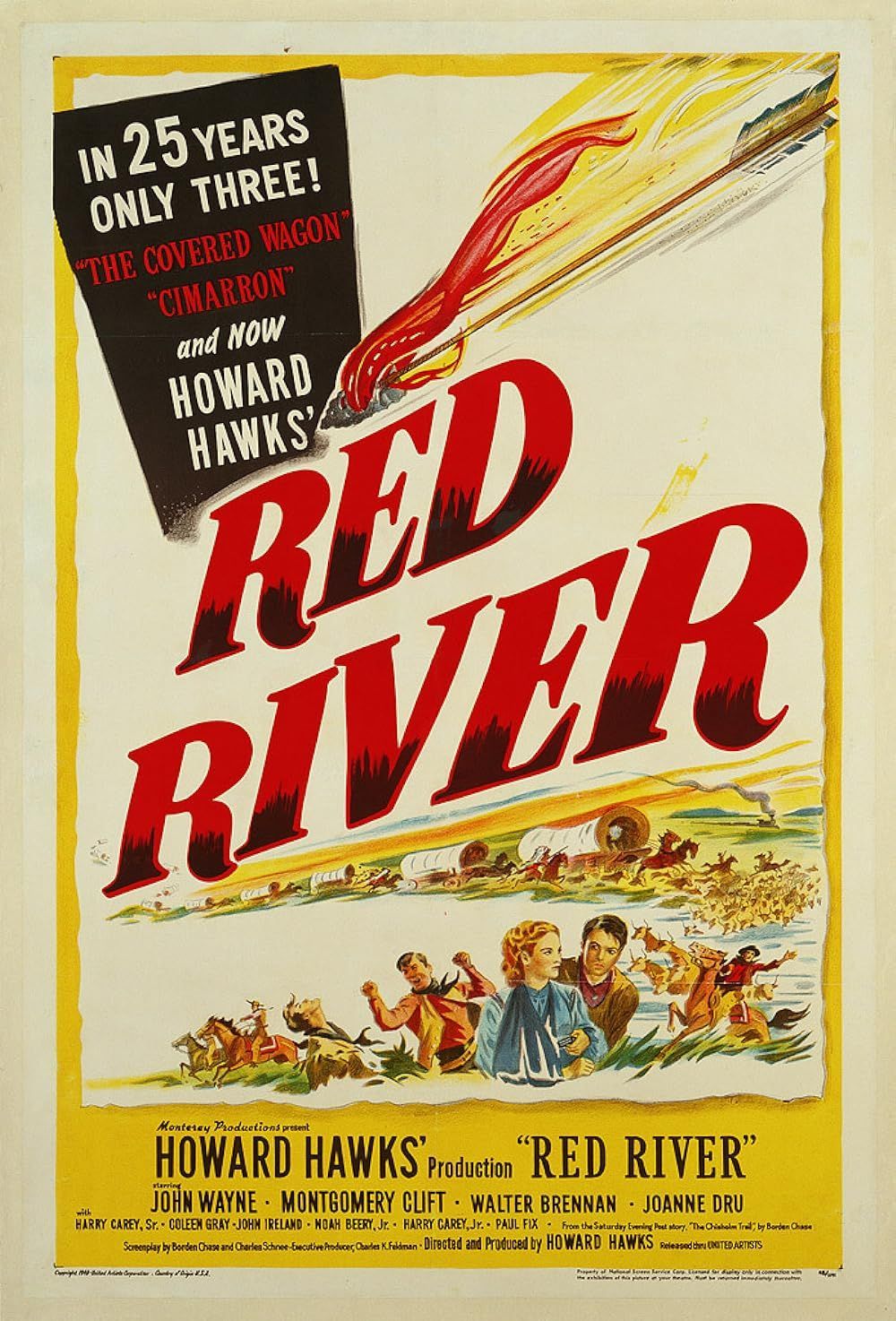
Red River
- Release Date
-
September 7, 1948
- Runtime
-
133 Minutes
3
‘The Man Who Shot Liberty Valance’ (1962)
Directed by John Ford
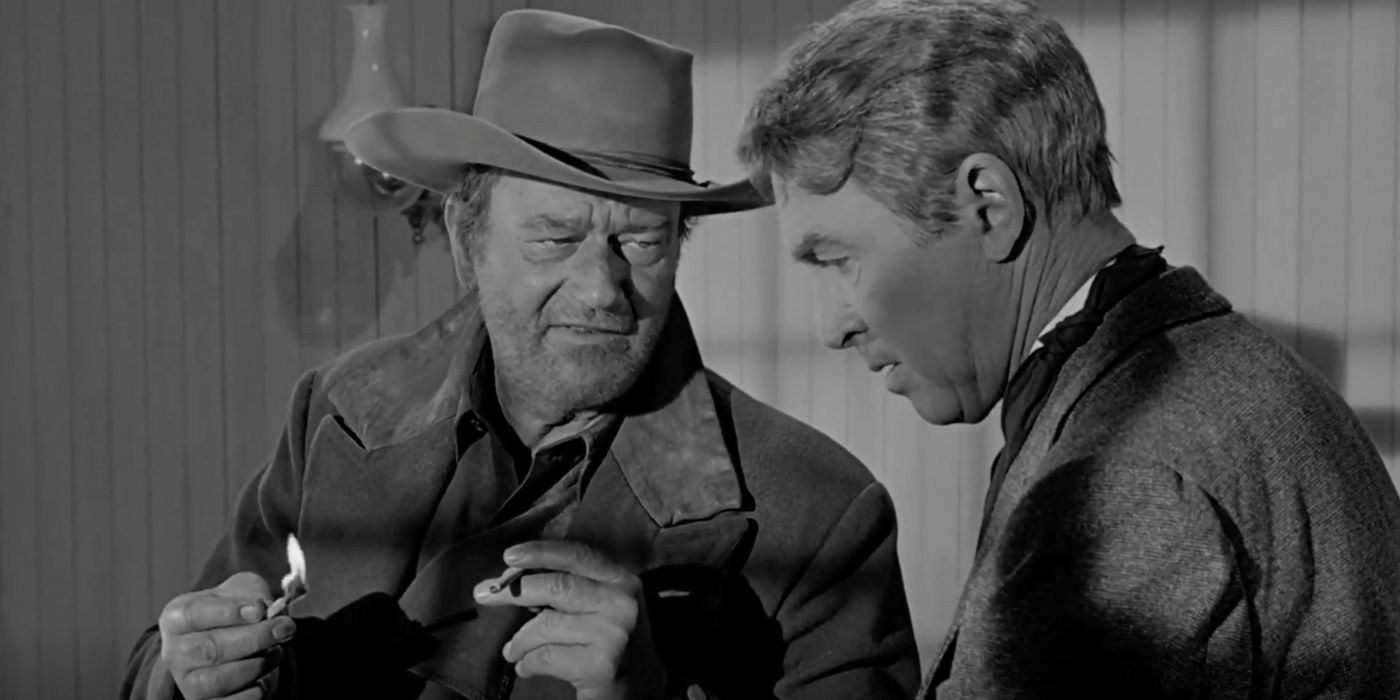
“When the legend becomes fact, print the legend.” The Shootist comes close, but it’s still not as mournful and introspective as The Man Who Shot Liberty Valance. It sees Wayne stepping into the role of rugged frontiersman Tom Doniphon. With parallels to She Wore A Yellow Ribbon, Doniphon watches the West, and the old code of honor it represents, fade into political compromise and modernity. The character is tragic, noble, and quietly heartbreaking. The film as a whole is steeped in melancholy, a eulogy for a world where action spoke louder than law.
As the story unfolds in flashback, we see how Doniphon stepped aside so that civilization, personified by James Stewart‘s idealistic lawyer, could take root. But the price is personal. Doniphon loses the woman he loves and becomes a footnote in someone else’s myth. Wayne underplays the role beautifully, letting silence and stoicism do the work. It’s one of his most vulnerable performances.
2
‘Rio Bravo’ (1959)
Directed by Howard Hawks
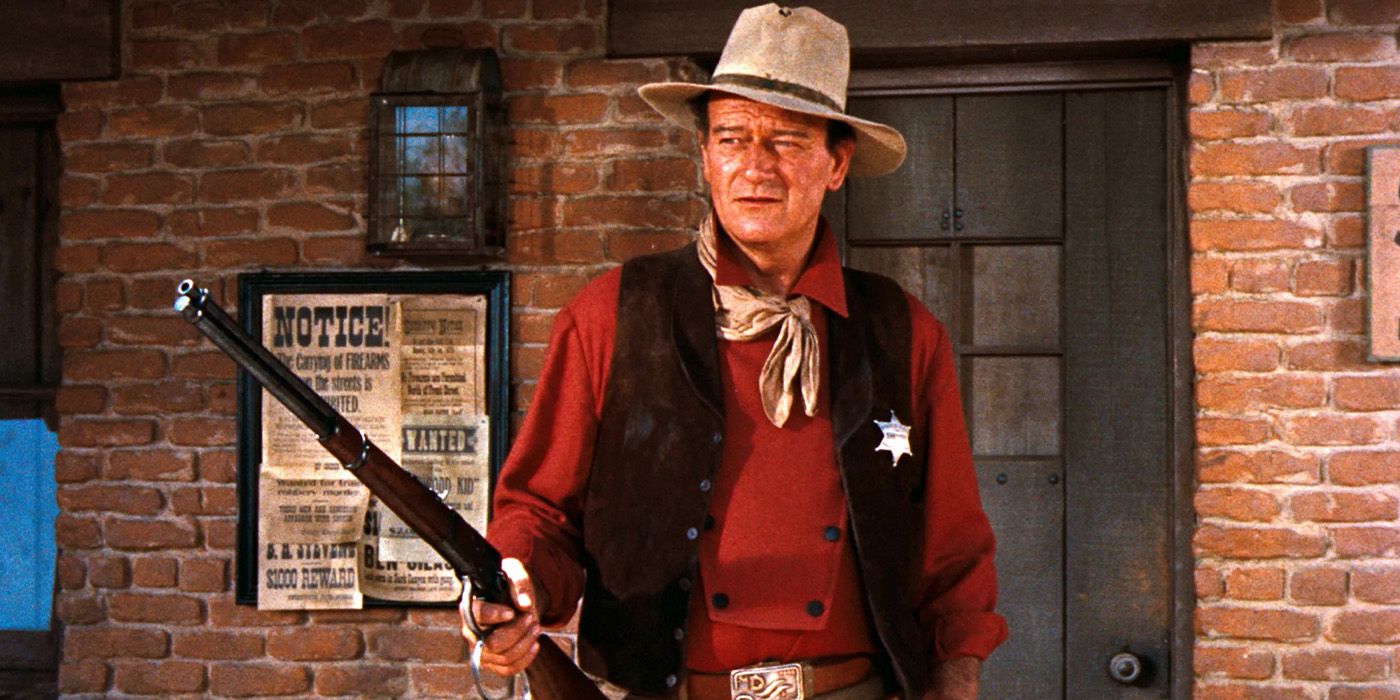
“Sorry don’t get it done, Dude.” Rio Bravo is a hangout Western, and that’s what makes it so beloved. It’s not in a rush to get anywhere. Instead, it lets you spend time with a group of flawed but lovable characters trying to hold their own in a town on the brink. Wayne has top billing as Sheriff John T. Chance, a man trying to keep a prisoner locked up while an army of thugs gathers outside. But the film’s real joy is in the relationships.
There’s Dean Martin as the alcoholic deputy Dude, Walter Brennan as the cranky old sidekick, and Ricky Nelson as the slick young gunslinger. Together, they form a makeshift family, and Wayne, far from being the lone wolf, becomes their anchor. Overall, Rio Bravo balances tension, humor, music, and action with near-perfect ease. It’s one of the most purely entertaining Westerns of the classic era, and Wayne is an indispensable part of it.
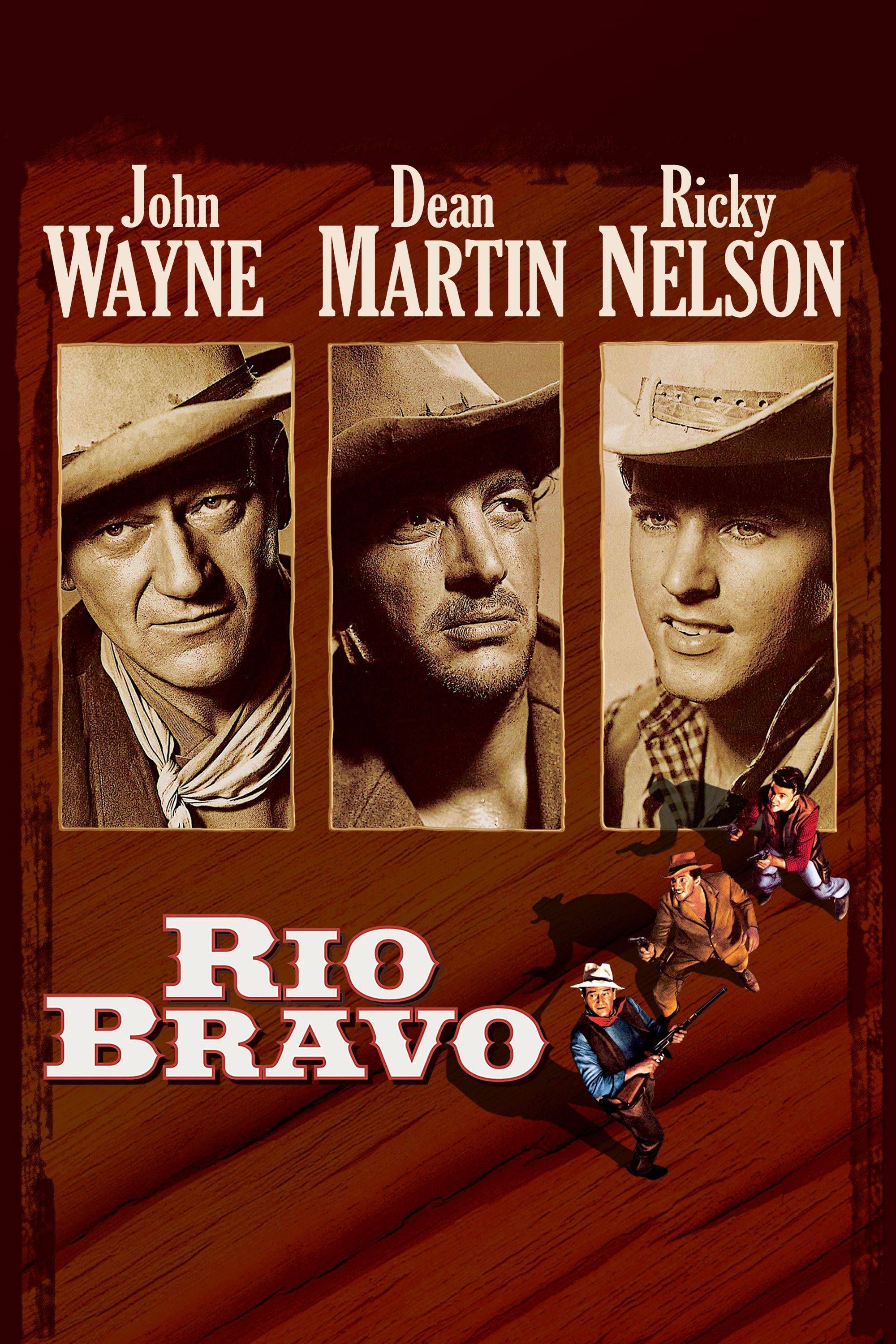
Rio Bravo
- Release Date
-
April 4, 1959
- Runtime
-
141 Minutes
1
‘The Searchers’ (1956)
Directed by John Ford
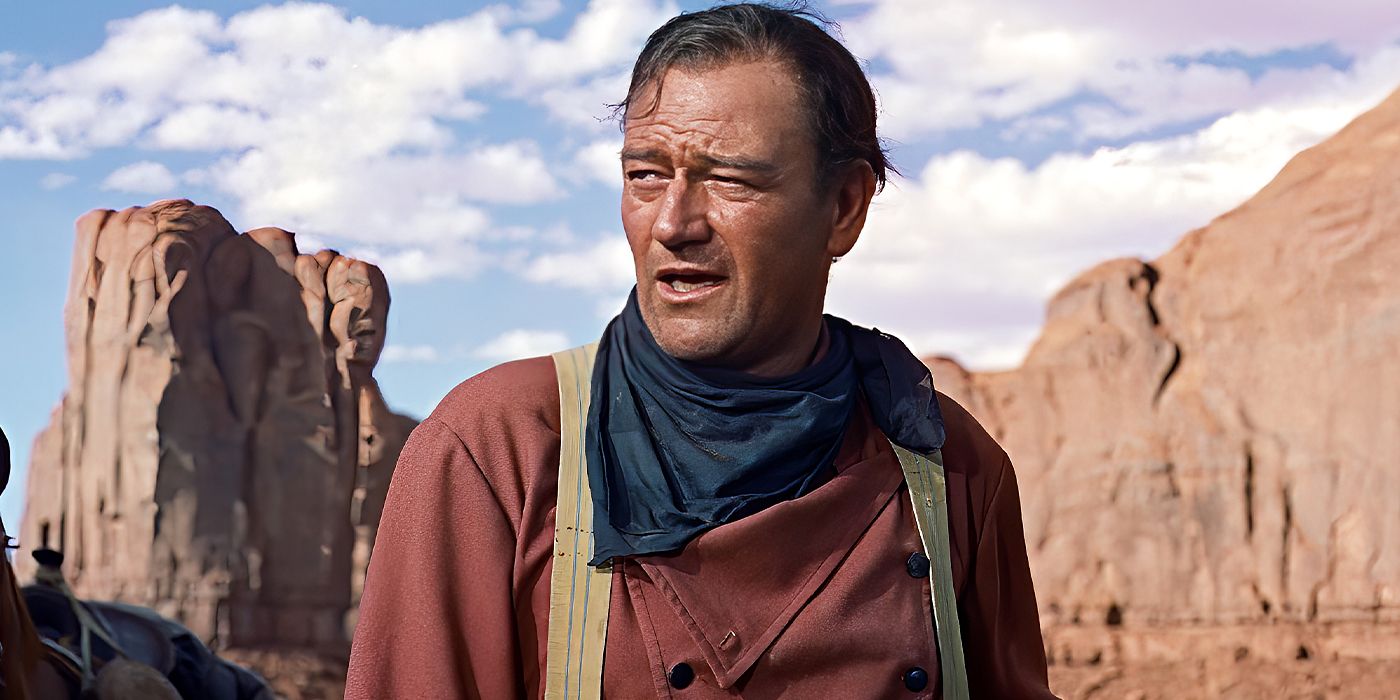
“Let’s go home, Debbie.” Only one movie was ever going to claim the top spot on this list. The Searchers is arguably Wayne’s best project and easily one of the most important Westerns ever. He plays Ethan Edwards, a Civil War veteran whose obsessive quest to rescue his kidnapped niece slowly reveals a man consumed by hatred, pride, and deep inner wounds. Wayne walks a razor’s edge between heroism and villainy, never softening the darkness inside Ethan. It’s a tricky balancing.
The visuals are terrific too. John Ford gives everything an operatic grandeur, with vast vistas and rugged mesas. Monument Valley has never looked so mythic. Yet the striking imagery extends to the smaller moments, too. Ethan’s final gesture, framed in a doorway he can never enter, is one of the most iconic shots in film history. It’s the image of a man who can save others but not himself.
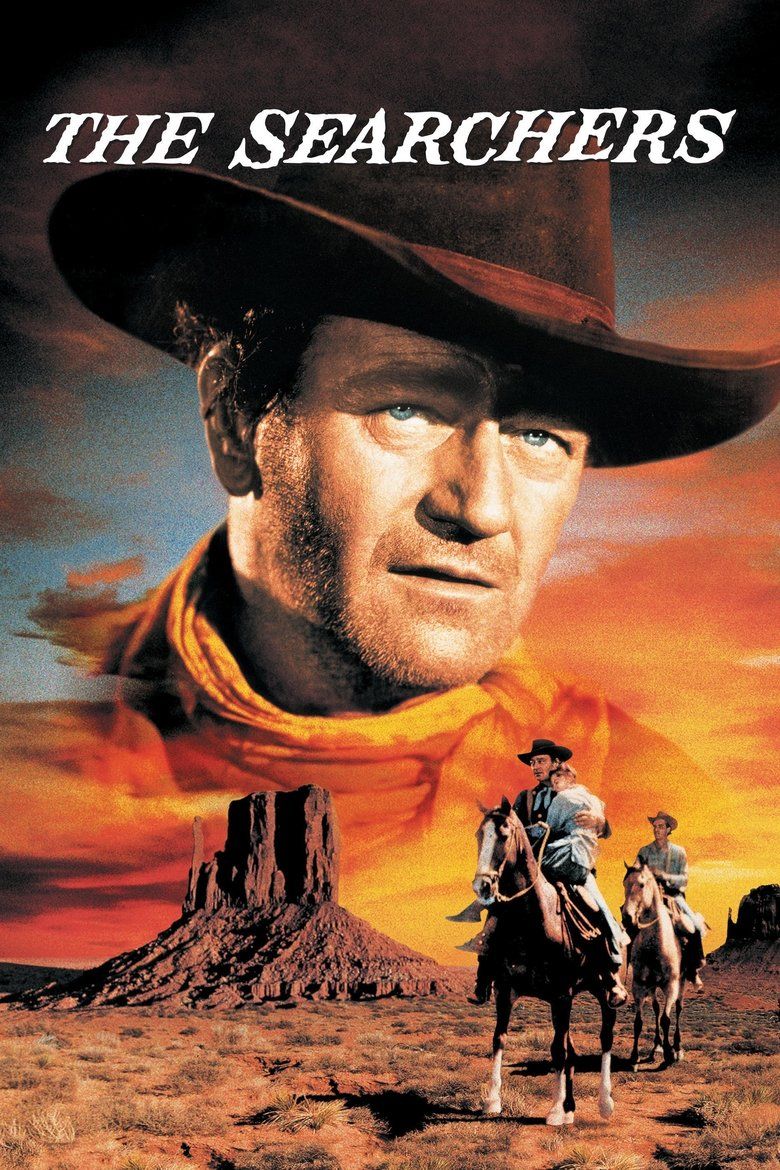
The Searchers
- Release Date
-
May 26, 1956
- Runtime
-
119 minutes
-

-

Jeffrey Hunter
Martin Pawley
NEXT: 10 Great Novels To Read if You Love Alfred Hitchcock Movies

